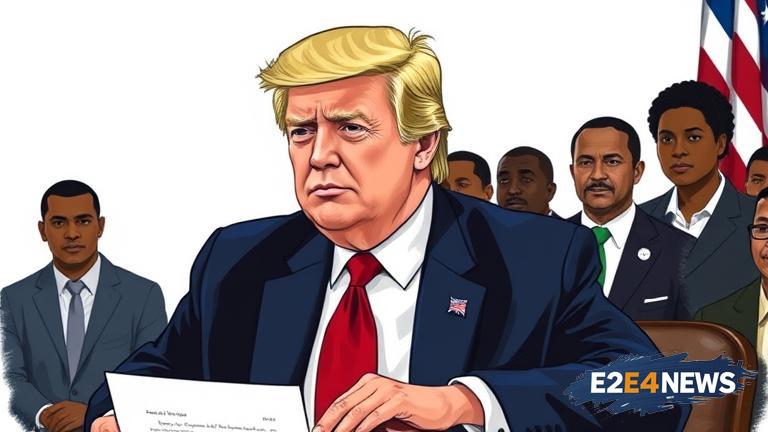The issue of cashless bail has been a contentious one in the United States, with many arguing that the current system disproportionately affects low-income individuals and communities of color. The Trump administration’s recent executive orders have added fuel to the fire, with some hailing it as a major step towards reform and others condemning it as a misguided attempt to undermine the justice system. Proponents of cashless bail argue that it’s a necessary step towards creating a more just and equitable system, where individuals are not punished solely because of their financial situation. They point to the fact that many people are forced to remain in jail simply because they cannot afford to pay bail, often for minor offenses. This, they argue, is a clear example of how the current system perpetuates inequality and disproportionately affects marginalized communities. On the other hand, opponents of cashless bail argue that it’s a threat to public safety, as it allows potentially dangerous individuals to be released back into the community without any guarantee that they will show up for their court dates. They point to the fact that many of the individuals who are released on cashless bail often have prior convictions or are accused of serious crimes, and that releasing them without any conditions could put the public at risk. Despite these concerns, many experts argue that the current system is in dire need of reform, and that cashless bail is a necessary step towards creating a more just and equitable system. They point to the fact that many other countries have successfully implemented cashless bail systems, and that it’s time for the United States to follow suit. The issue of cashless bail has also been the subject of much debate at the state and local level, with many jurisdictions implementing their own reforms in recent years. For example, New York recently passed a law eliminating cash bail for many minor offenses, while California has implemented a system where judges are required to consider an individual’s ability to pay when setting bail. The Trump administration’s executive orders have also sparked a national conversation about the issue, with many calling for a more comprehensive approach to reform. Some have argued that the orders do not go far enough, and that more needs to be done to address the systemic issues that have led to the current crisis. Others have praised the orders as a major step forward, and have called for other states and jurisdictions to follow suit. As the debate over cashless bail continues to rage on, it’s clear that the issue is complex and multifaceted, and that there are no easy answers. However, one thing is certain: the current system is in need of reform, and it’s time for policymakers to take a closer look at the issue and work towards creating a more just and equitable system for all. The issue of cashless bail is also closely tied to the broader issue of mass incarceration, and the fact that the United States has one of the highest incarceration rates in the world. Many experts argue that the current system is designed to perpetuate inequality and keep marginalized communities in a state of oppression, and that cashless bail is just one part of a larger effort to address these issues. The Trump administration’s executive orders have also been seen as a major victory for civil rights groups, who have been advocating for cashless bail reform for years. These groups argue that the current system is a clear example of systemic racism, and that cashless bail is a necessary step towards creating a more just and equitable system. Despite the progress that has been made, there is still much work to be done, and it’s clear that the issue of cashless bail will continue to be a major topic of debate in the years to come. As policymakers and advocates continue to work towards creating a more just and equitable system, it’s clear that the issue of cashless bail will remain at the forefront of the national conversation. The fact that the Trump administration has taken a step towards reform is a major victory, but it’s also clear that more needs to be done to address the systemic issues that have led to the current crisis. The issue of cashless bail is complex and multifaceted, and it will require a comprehensive approach to reform. However, one thing is certain: the current system is in need of reform, and it’s time for policymakers to take a closer look at the issue and work towards creating a more just and equitable system for all.
